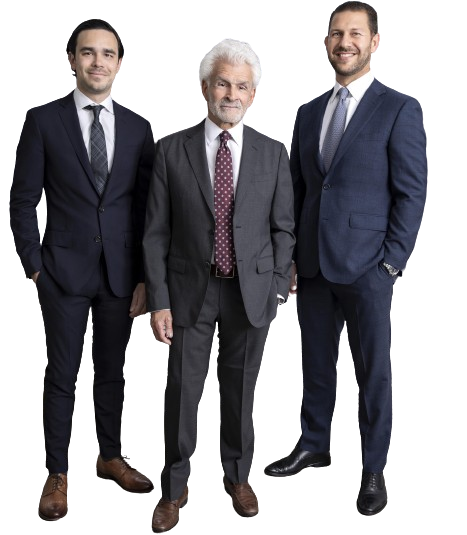
When a car crash happens, liability often falls squarely on the shoulders of one or more drivers. After all, human error is a leading cause of motor vehicle accidents. But sometimes, the cause of a crash lies deeper, beyond driver behavior. In some cases, the true culprit is a mechanical failure, design flaw, or malfunctioning vehicle component. When that happens, the vehicle manufacturer could be legally responsible.
Yes, vehicle manufacturers can be held liable for accidents, especially when a defective design, manufacturing error, or failure to warn consumers about a hazard leads to serious injuries or death.
When Can a Vehicle Manufacturer Be Held Liable?
Under product liability laws, vehicle manufacturers can be held liable for an accident. Defective vehicle components can lead to devastating, even fatal, consequences, and a plaintiff does not need to prove that the manufacturer acted with intent to harm or even that they were negligent. In most product liability cases, strict liability applies, meaning the manufacturer is responsible simply because their defective product caused injury when used as intended.
What Types of Vehicle Defects Commonly Lead to Accidents?
Defective vehicle components can cause accidents in many ways, some more obvious than others. Vehicle manufacturers can be held liable for:
- Brake System Failures: this can lead to rear-end collisions, intersection crashes, or complete loss of control.
- Tire Defects: can result in blowouts, tread separation, or sidewall failures, often while the vehicle is in motion at high speeds. These issues frequently cause drivers to lose control of the vehicle, increasing the risk of rollovers and highway crashes. Tire recalls are common and are often linked to poor manufacturing processes or substandard materials.
- Steering System Malfunctions: a steering defect can result from a design flaw or an improperly assembled component and can cause devastating accidents, especially at high speeds or in traffic.
- Fuel System Defects: faulty fuel lines, tanks, or connections can create dangerous conditions where even a minor collision results in leaks, fires, or explosions. Fuel system defects often appear in crash investigations where the vehicle ignited upon impact, raising serious concerns about fire risk in otherwise survivable crashes.
- Airbag Deployment Failures: known issues include airbags that don’t activate during a crash, explode due to over-pressurization (as seen in the Takata recalls), or deploy unexpectedly while driving.
- Electrical System Defects: malfunctioning electrical systems can cause fires, short circuits, or failures in critical components like lighting, braking, or engine operation.
- Ignition Switch Failures: when a switch fails, it can cause the engine to shut off while driving, disabling power steering, braking, and airbags all at once.
- Structural Defects: defects in the frame or safety cage can turn a survivable crash into a fatal one. Similarly, defective door latches can cause doors to fly open during a collision, increasing the risk of ejection.
What Safety Obligations Do Vehicle Manufacturers Have?
Vehicle manufacturers are bound by both federal safety standards and general product liability laws. The National Highway Traffic Safety Administration (NHTSA) regulates the automotive industry in the United States and requires that manufacturers meet specific Federal Motor Vehicle Safety Standards (FMVSS). These standards cover everything from crashworthiness and airbag deployment to seat belt integrity and pedestrian safety.
Manufacturers are also required to monitor vehicle performance after cars hit the market. If they discover or are made aware of a safety-related defect, they must report it to NHTSA and begin a recall if the defect poses an unreasonable risk. Recalls are not optional. Once a defect is confirmed, the manufacturer must take action to fix the issue, usually by offering free repairs or replacements to affected consumers.
Failing to meet these obligations not only puts lives at risk but also opens the door to substantial legal liability. If a manufacturer knew about a defect but delayed a recall, failed to properly notify consumers, or concealed information from regulators, they may face punitive damages in addition to compensating victims for medical bills, lost income, pain and suffering, and other damages.
How Do You Prove a Manufacturer Is at Fault?
First, the injured party must show that the vehicle or component was defective and that this defect directly caused the accident or made the resulting injuries worse than they otherwise would have been.
This often involves working with accident reconstruction experts, automotive engineers, and forensic specialists. These professionals can inspect the vehicle, analyze crash data, review recall records, and determine whether a defect played a role. In many cases, attorneys will also subpoena internal company documents—emails, memos, or test results—to uncover what the manufacturer knew and when they knew it.
Vehicle manufacturers and their insurers fight these claims vigorously, often arguing that the driver caused the crash or that the defect wasn’t the main cause of injury. Having a knowledgeable car accident attorney on your side is crucial to counter these arguments, collect evidence, and present a compelling case in court or during settlement negotiations.
Why Legal Representation Is Critical in Manufacturer Liability Cases
Lawsuits against car manufacturers are rarely straightforward. These are large, well-funded companies with teams of legal experts and access to top-tier defense resources. In addition, product liability cases often involve multiple parties, such as parts suppliers, dealerships, and third-party service centers. Liability can be shared between these entities, and that can significantly impact your lawsuit and the compensation you receive.
At Morelli Law Firm, we understand how to navigate the complexities of these cases. Our team has experience handling high-stakes litigation against some of the largest companies in the automotive industry. We work with top experts, build strong legal strategies, and fight to secure full compensation for our clients through settlement or at trial.
If you or someone you love has been injured in a crash and you suspect that a defective vehicle or auto part played a role, it’s important to act quickly. Preserving the vehicle, documenting your injuries, and consulting with a lawyer early on can make all the difference in your ability to recover compensation.
Vehicle manufacturers can and should be held accountable when their products put lives at risk. You shouldn’t have to shoulder the burden of medical expenses, lost wages, and long-term recovery alone, especially when a preventable defect caused your injuries.
Let our team take your case. We offer free consultations, so call today to set up a time to meet and talk about your case.




